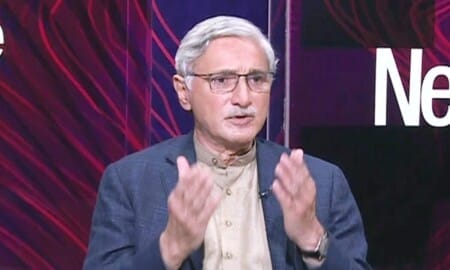In a move that reverberated through the judicial corridors of Pakistan, Justice Shahid Jamil Khan opted to step down from his position at the Lahore High Court (LHC) on Friday. His decision came to light through a resignation letter where he invoked Article 206(1) of the Constitution of the Islamic Republic of Pakistan, choosing to leave his decade-long service with immediate effect.
Justice Khan’s departure from the bench is not an isolated occurrence but part of a string of recent resignations that have struck the upper echelons of Pakistan’s judiciary. Earlier in the week, the legal fraternity witnessed the exit of Justice Sayyed Mazahar Ali Akbar Naqvi and Justice Ijaz Ul Ahsan from the Supreme Court (SC). The resignations raise questions about the undercurrents affecting the judicial landscape in the country.
With over ten years on the bench, Justice Khan’s tenure was marked by his commitment to legal integrity and the dispensation of justice. In his farewell note, he referred to his time as a judge as an “absolute honor,” noting that personal circumstances prompted his decision to embark on a new chapter in life. Such departures from high judicial office are not common, and when they occur, they naturally spark a dialogue on the pressures and challenges faced by those in the justice system.
The judiciary in Pakistan operates under a constitution that has seen its share of stresses, particularly in balancing the complex interplay between the executive, legislature, and the judiciary. These resignations from high-ranking justices come at a time when the public discourse around judicial independence and the rule of law is particularly fervent.
Justice Naqvi’s resignation note pointed to “circumstances which were a matter of public knowledge,” a statement that has fueled speculation and concern among legal experts and civil society activists. While the specific reasons for these resignations remain private, the broader implications for the judiciary’s autonomy and the pressures exerted upon it by various state and non-state actors are subjects of intense debate.
These consecutive resignations could signal a moment of reflection for the judiciary, prompting introspection into the internal and external factors that influence the judicial process in Pakistan. Moreover, they underscore the need for the judiciary to maintain its integrity amidst a milieu that often presents complex legal and ethical challenges.
As these judges vacate their esteemed positions, the process of appointing their successors begins, raising questions about the direction the judiciary will take. The legal community and the citizens of Pakistan will be watching closely to ensure that the principles of justice, which form the bedrock of any democracy, are upheld.
Justice Shahid Jamil Khan’s resignation, therefore, not only marks the end of a personal era but also serves as a critical juncture for Pakistan’s judiciary. The legacy left behind by these justices and the precedents they set will continue to influence the country’s legal framework. Their exits, now part of the public record, remind us of the personal and professional sacrifices made by those who serve the cause of justice and the importance of supporting a judiciary that can operate without hindrance or undue influence.
Tags: #JusticeResignation #PakistanJudiciary #RuleOfLaw #JudicialIndependence #ConstitutionalDemocracy
What’s your take on this? Let’s know about your thoughts in the comments below!












